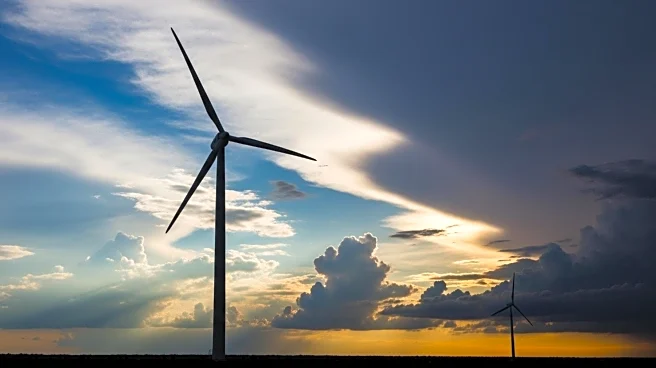What is the story about?
What's Happening?
Ørsted, a leader in offshore wind energy, is encountering significant profitability risks due to shifting wind patterns and regulatory challenges in the U.S. The Danish company is facing operational risks from climate variability affecting wind patterns, which threaten the efficiency of its U.S. projects like South Fork and Revolution Wind. Additionally, regulatory changes under the Trump administration, such as the 'One Big Beautiful Bill Act,' have phased out crucial tax credits for offshore wind projects, impacting Ørsted's financial strategies. The Bureau of Ocean Energy Management has also issued a stop-work order for the Revolution Wind project, citing national security concerns, which has resulted in substantial financial losses for Ørsted.
Why It's Important?
The challenges faced by Ørsted highlight the broader difficulties in the renewable energy sector, particularly in the U.S. The regulatory and operational hurdles could slow down the transition to renewable energy, affecting the industry's growth and investment potential. Ørsted's situation underscores the need for strategic flexibility and innovation to navigate these challenges. The company's financial stability is at risk, which could impact investor confidence and the future of offshore wind projects in the U.S. The geopolitical and regulatory environment plays a crucial role in shaping the renewable energy landscape, influencing both domestic and international stakeholders.
What's Next?
Ørsted may need to reassess its U.S. strategy, potentially focusing more on European markets where regulatory conditions might be more favorable. The company could explore technological advancements to mitigate operational risks and advocate for policy changes to support renewable energy initiatives. Investors will be closely monitoring Ørsted's ability to adapt to these challenges and maintain profitability. The outcome of the Revolution Wind project's legal actions against the stop-work order could set a precedent for future offshore wind developments in the U.S.
Beyond the Headlines
The situation with Ørsted reflects the complex interplay between climate science, political will, and economic interests in the renewable energy sector. The company's challenges may prompt broader discussions on the sustainability and resilience of renewable energy projects in the face of regulatory and environmental uncertainties. The long-term implications could include shifts in investment strategies and policy frameworks to better support the transition to clean energy.

















